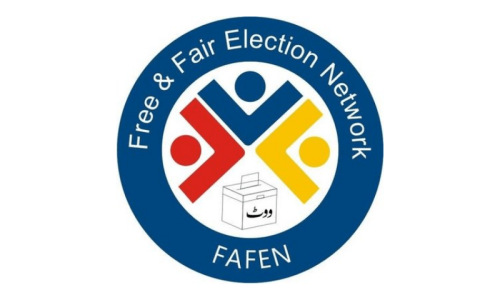LAKKI MARWAT: Speakers at a dialogue here on Monday asked the federal and provincial governments to increase health and education budget and enhance funding for the underserved regions of the country.
The dialogue was arranged by Community Development Organisation (CDO) with the support of Citizens Network for Budget Accountability (CNBA) and Centre for Peace and Development Initiatives (CPDI) in the Lakki city.
Noted speakers included CDO programme officer Inayatullah Khan, Zafrullah Khan Advocate, Sultan Salahuddin Advocate, Ikramullah Khan and members of civil society organisations.
They underlined the need for enhancing service delivery in the health sector through public private partnership and prioritising improving hospital infrastructure.
Speakers at Lakki dialogue also demand enhanced funding for underserved areas
Mr Inayatullah also stressed the need for prioritising primary and secondary education to provide a strong educational foundation across the country.
He said that targeted investments should be promoted to ensure equitable educational access in Balochistan and Khyber Pakhtunkhwa, and that steps should be taken to ensure availability of water, sanitation and hygiene facilities in rural schools, to increase students’ attendance and improve their health.
Analysing the budget trends of the last four years, other speakers said gradual increase in the budget had been insufficient to meet the growing needs, and that there were clear disparities between the provinces in both the health and education sectors.
They said Pakistan had shortage of 589,122 hospital beds, which highlights the urgent need to expand healthcare facilities, especially in resource-poor areas like Balochistan and Khyber Pakhtunkhwa, where per capita health expenditure is alarmingly low.
“The bulk of the federal allocations in the education sector goes to higher education, leaving primary and secondary education with less resources,” said Zafrullah Khan, adding that Sindh’s education budget had emerged as a model of balanced distribution, ensuring equal funding among primary, secondary and higher education sectors.
He revealed that Punjab’s budget appeared to be mostly allocated to higher education with only seven per cent allocated to primary education.
He said Khyber Pakhtunkhwa also allocated 73 per cent of its budget to higher education, while Balochistan focused significantly on primary and secondary education in its education budget to meet basic educational needs.
The speakers stressed the need for increasing the health budget and prioritising hospital infrastructure. They added that to reduce healthcare inequalities, funding should be targeted to under-resourced areas and a strategy on public-private partnerships and preventive healthcare should be adopted. They said achieving sustainable development goals, especially providing standard healthcare and access to quality education, should be prioritised.
Published in Dawn, December 31st, 2024












































Dear visitor, the comments section is undergoing an overhaul and will return soon.